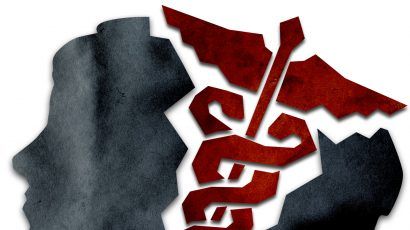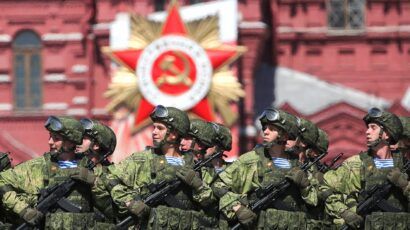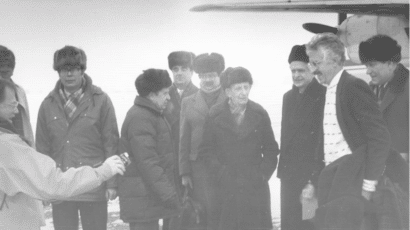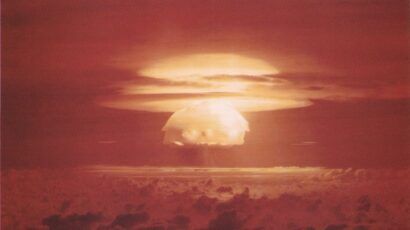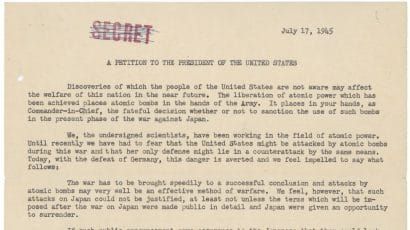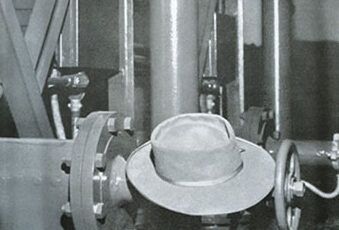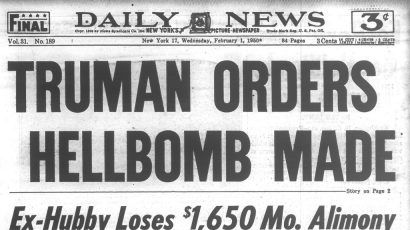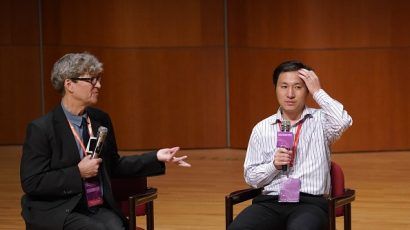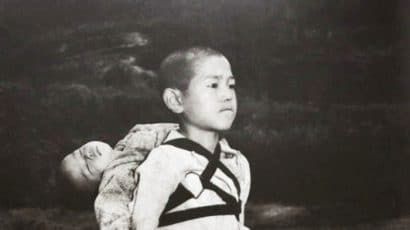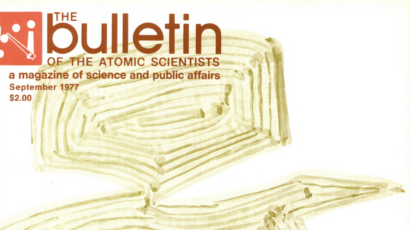Search results for trump
En medio de la posible transformación actual de un orden global centrado en EE. UU. a uno multilateral, tal como lo describió mi buen amigo Gregory Kulacki en esta mesa redonda, el desarme nuclear está ocupando nuevamente un lugar muy importante entre los asuntos que son objeto de debate entre estrategas, científicos y adoptadores de … Continued
The Russian disinformation attack that poses a biological danger
By accusing the US of developing bioweapons in Georgia, Moscow is eroding the norm against them.
2020 Annual Dinner Speakers
November 12, 2020 75th Anniversary Dinner The Bulletin’s anniversary dinner was an interactive virtual experience! Guests were immersed in small “virtual tables” for conversations with leading experts in the fields of nuclear risk, climate change, and disruptive technologies. Did you miss the conversations? Watch the videos from the main program, and we’ll see you next year! … Continued
Nuclear Notebook: Russian nuclear weapons, 2023
Russia’s nuclear arsenal includes a stockpile of approximately 4,489 warheads with 1,674 strategic warheads deployed on ballistic missiles and at heavy bomber bases, while an approximate additional 999 strategic warheads—along with 1,816 nonstrategic warheads—are held in reserve. The Russian arsenal continues its broad modernization intended to replace most Soviet-era weapons by the late-2020s.
Siegfried Hecker: Putin has destroyed the world nuclear order. How should the democracies respond?
In this interview, renowned nuclear security and policy expert Sig Hecker explains the enormous damage that Russian President Vladimir Putin has done to the world nuclear order via his decision to invade Ukraine. That decision marks, Hecker contends, a turning point in world nuclear affairs as momentous as the dissolution of the Soviet Union.
A current security imperative: the US role in the Marshall Islands
As America celebrates Asian Pacific Islander Heritage Month this May, a former undersecretary of state for arms control and international security remembers the painful history of Castle Bravo—the largest and most catastrophic US nuclear weapons test conducted in the Marshall Islands during the Cold War—and urges the United States to finish the compact extension with the three island nations to contain China's growing influence in the Pacific.
Werner Herzog takes on the Internet
Werner Herzog's new documentary looks to be packed with interesting interviews and stories from the virtual frontier, a realm most Americans could probably stand to learn more about.
Politics is about acting alike, not thinking alike
I have enjoyed the exchange between Randy Olson and Robert Socolow on the need for effective communication of science, and not simply as a means of conferring content but as a two-way process that builds trust and legitimacy. In my final commentary in this exchange, I’d like to return to discussing Socolow’s central claim that … Continued
The man who declared the ‘end of history’ fears for democracy’s future
In a few short years just over a quarter-century ago, the Berlin Wall fell, the old Soviet Union collapsed, and the Bulletin was able to set the hands of its Doomsday Clock back farther than ever before: 17 minutes to nuclear midnight. The world seemed to breathe a general sigh of relief, expressed most memorably … Continued
The psychology of nuclear restraint
The key variable that changed in August 1945 and led to 70 years of nuclear peace was the perceived enormity of the choice to drop the bomb.
No first use: keeping nuclear weapons inside the box
Nuclear weapons are like a wedding “gift” that should never be opened.
Tom Steyer on clean energy: It’s where the big money is going
In this interview with the Bulletin’s Dan Drollette Jr., investor, philanthropist, and former presidential candidate Tom Steyer talks about how to make the transition to a green economy just for workers, companies, and governments—and, speaking as a billionaire, what he thinks the private sector can do.
Interview: CalPERS’ Anne Simpson on the climate change power of investment managers
In this interview, Anne Simpson, director of global governance at CalPERS, California’s public employees’ pension fund, and a noted activist investor, explains her approach to encouraging fossil fuel companies to clean up their acts.
Manhattan Project scientists to President Harry S. Truman: Don’t use atomic weapons in World War II
Virtual Tour: Turn Back the Clock “] On July 17, 1945, Manhattan Project scientist Leo Szilard writes a petition to U.S. President Harry S. Truman-signed by 70 Manhattan Project scientists-asking him to refrain from using atomic weapons in the war. Nevertheless, Truman used two nuclear weapons over the Japanese cities of Hiroshima and Nagasaki on … Continued
Oppie—“A very mysterious and delphic character.” Interview with Kai Bird, co-author of American Prometheus
Kai Bird, one of the co-authors of "American Prometheus: The Triumph and Tragedy of J. Robert Oppenheimer"—which took 25 years to complete—explains why he once described biography as: “The hardest form of history. And the most expensive.”
1950: What the scientists are saying about the H-bomb
These companion articles were originally published in the March 1950 issue of the Bulletin, in the wake of President Harry Truman’s announcement that the United States would pursue a hydrogen bomb. They are republished here as part of our special issue commemorating the 75th year of the Bulletin.
Brave new world with Chinese characteristics
The story of the scientist He Jiankui and the world’s first genetically edited humans, born from fertilized eggs modified with CRISPR-cas9 technology, is one in which high-tech ambition meets capitalism with Chinese characteristics. And the poor village boy pursued both his ambition and the capital required to reach it with shrewdness and zest, apparently trampling ethical boundaries along the way in a system that allowed him to trample away.
1975: All in our time: A foul and awesome display
Kenneth Bainbridge recounts his role during the first nuclear bomb test in July 1945. This is the second and final installment of his account of the test.
What can we learn from ‘Oppenheimer’ about the blind spots in nuclear storytelling?
Oppenheimer could instigate a much-needed public conversation about the dangers of nuclear weapons. The world will be better served if that conversation also includes the people affected by nuclear weapons production, testing, and use.
The Oppenheimer case: A study in the abuse of law
A former Atomic Energy Commission legal officer’s account of how its top scientific adviser was deposed.

